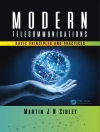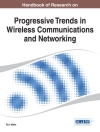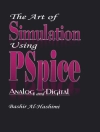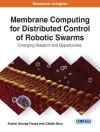This book is a collection of best-selected research papers presented at the International Conference on Advances in Data-driven Computing and Intelligent Systems (ADCIS 2023) held at BITS Pilani, K K Birla Goa Campus, Goa, India, during September 21–23, 2023. It includes state-of-the-art research work in the cutting-edge technologies in the field of data science and intelligent systems. The book presents data-driven computing; it is a new field of computational analysis which uses provided data to directly produce predictive outcomes. The book is useful for academicians, research scholars, and industry persons.
قائمة المحتويات
Influences of specimen and fiber sizes on the direct tensile resistance of ultra-high-performance fiber-reinforced concretes.- Conceptual Model for Data Collection and Processing in a Smart Medical Ward.- Parts-of-Speech Tagger in Assamese using LSTM and Bi-LSTM.- Detection of Explicit Lyrics in Hindi Music Using Different Machine Learning Algorithms.- Does the Resilience learning game foster workforce open innovation and sustainability attributes? Empirical evidence from Greek food industry.- Seizure Detection by Analyzing EEG Signals Using Deep Learning Networks.- Enhancing Intelligent Video Surveillance: Deep Learning Approaches for Human Anomalous Behavior Recognition.- Guj Former: A Vision Transformer Based Architecture for Gujarati Handwritten Character Recognition.- Prediction of Soil Properties for Agriculture using Ensemble Learning Techniques/- Classification of organic and recyclable waste using a Deep learning approach.- Machine Learning and its Application in Food Safety.-ISO/IEC 27001 Standard: Analytical and Comparative Overview.- Hybrid Deep Learning based Potato and Tomato Leaf Disease Classification.- Anti-Forensic Analysis for Image Splicing Detection through Advanced Filters.- Classification and prediction of vibration natural frequencies of a circular plate using Chladni patterns and deep learning techniques.- Multi-Sensor Data Fusion and Deep Machine Learning Models based Mental Stress Detection System.- Segmentation-based Transformer Network for Automated Skin Disease Detection.
عن المؤلف
Swagatam Das received the B. E. Tel. E., M. E. Tel. E (Control Engineering specialization), and Ph. D. degrees, all from Jadavpur University, India, in 2003, 2005, and 2009, respectively. Swagatam Das is currently serving as an associate professor and the head of the Electronics and Communication Sciences Unit of the Indian Statistical Institute, Kolkata, India. His research interests include evolutionary computing and machine learning. Dr. Das has published more than 300 research articles in peer-reviewed journals and international conferences. He is the founding co-editor-in-chief of swarm and evolutionary computation, an international journal from Elsevier. He has also served as or is serving as the associate editor of the IEEE Transactions on Cybernetics, Pattern Recognition (Elsevier), Neurocomputing (Elsevier), Information Sciences (Elsevier), IEEE Trans. on Systems, Man, and Cybernetics: Systems, and so on.
Snehanshu Saha holds Master’s Degree in Mathematicaland Computational Sciences at Clemson University, USA, and Ph.D. from the Department of Applied Mathematics at the University of Texas at Arlington in 2008. He was the recipient of the prestigious Dean’s Fellowship during Ph.D. and Summa Cum Laude for being in the top of the class. After working briefly at his Alma matter, Snehanshu moved to the University of Texas El Paso as a regular full-time faculty in the Department of Mathematical Sciences, University of Texas El Paso. Currently, he is a professor of Computer Science and Engineering at PES University since 2011 and heads the Center for Astro Informatis, Modeling, and Simulation. He is also a visiting professor at the Department of Statistics, University of Georgia, USA, and BTS Pilani, India.
Carlos A. Coello Coello (Fellow, IEEE) received the Ph.D. degree in computer science from Tulane University, New Orleans, LA, USA, in 1996. He is currently a professor with Distinction (CINVESTAV-3F Researcher), Computer Science Department, CINVESTAV-IPN, Mexico City, Mexico. He has authored and co-authored over 500 technical papers and book chapters. He has also co-authored the book Evolutionary Algorithms for Solving Multiobjective Problems (2nd ed., Springer, 2007) and has edited three more books with publishers such as World Scientific and Springer. His publications currently report over 60000 citations in Google Scholar (his H-index is 96). His major research interests are evolutionary multi-objective optimization and constraint-handling techniques for evolutionary algorithms.
He has received several awards, including the National Research Award (in 2007) from the Mexican Academy of Science (in the area of exact sciences), the 2009 Medal to the Scientific Merit from Mexico City’s congress, the Ciudad Capital: Heberto Castillo 2011 Award for scientists under the age of 45, in Basic Science, the 2012 Scopus Award (Mexico’s edition) for being the most highly cited scientist in engineering in thefive years previous to the award and the 2012 National Medal of Science in Physics, Mathematics, and Natural Sciences from Mexico’s presidency (this is the most important award that a scientist can receive in Mexico). He also received the Luis Elizondo Award from the Tecnológico de Monterrey in 2019.
Dr. Jagdish Chand Bansal is an Associate Professor (Senior Grade) at South Asian University New Delhi and Visiting Faculty at Maths and Computer Science, Liverpool Hope University UK. He also holds visiting professorship at NIT Goa, India. Dr. Bansal obtained his Ph.D. in Mathematics from IIT Roorkee. Before joining SAU New Delhi, he worked as an Assistant Professor at ABV- Indian Institute of Information Technology and Management Gwalior and BITS Pilani. His Primary area of interest is Swarm Intelligence and Nature Inspired Optimization Techniques. Recently, he proposed a fission-fusion social structure based optimization algorithm, Spider Monkey Optimization (SMO), which is being applied to various problems in the engineering domain. He has published over 70 research papers in various international journals/conferences. He is the Section Editor (editor-in-chief) of the journal Methods X published by Elsevier. He is the series editor of the book series Algorithms for Intelligent Systems (AIS), Studies in Autonomic, Data-driven and Industrial Computing (SADIC), and Innovations in Sustainable Technologies and Computing (ISTC) published by Springer. He is also the Associate Editor of Engineering Applications of Artificial Intelligence (EAAI) and ARRAY published by Elsevier. He is the general secretary of the Soft Computing Research Society (SCRS). He has also received Gold Medal at UG and PG levels.












